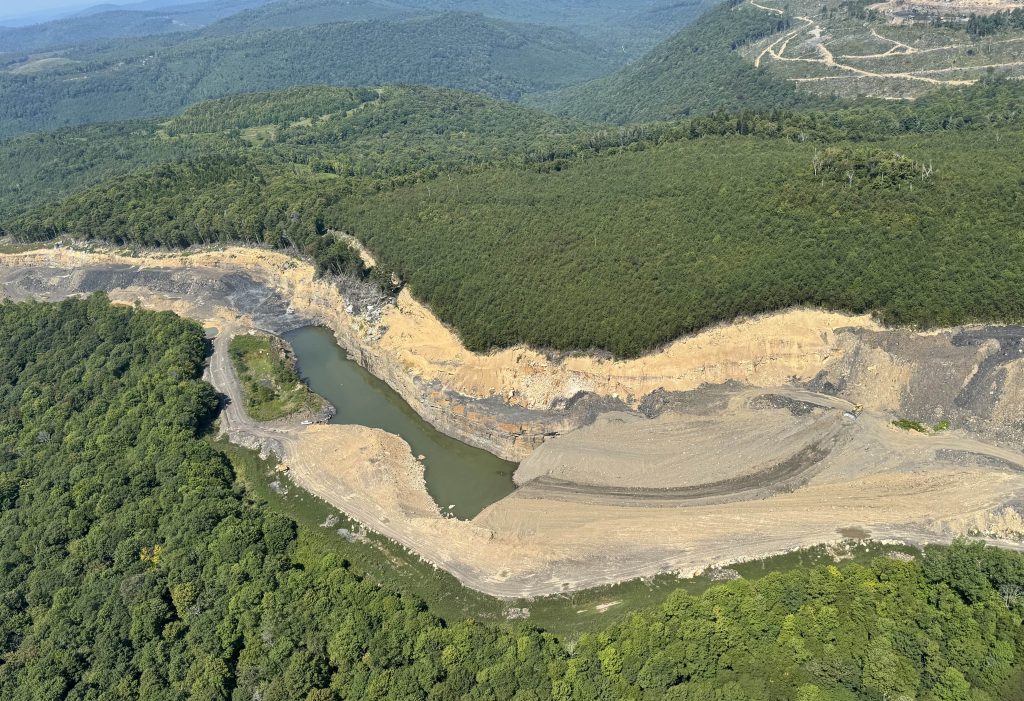Cleaning Up Coal Ash
For well over a century, power plants across the country have burned coal to generate electricity. And for just as long, leftover coal ash has been dumped in open, unlined pits near the power plant, usually located on a river or lake. Every year, U.S. power plants produce 130 million tons of coal ash, which is the second largest waste stream in the country after municipal garbage.
Coal ash concentrates the toxic heavy metals found in coal, including arsenic, mercury, lead and selenium. Stored in unlined, wet impoundments, coal ash has been leaking these toxics into our groundwater and surface waters for years. Sometimes these impoundments collapse — with disastrous results.
Yet government regulations for coal ash management are either non-existent or sparse, and there is little enforcement of the regulations that do exist. In North Carolina, this lack of oversight — and the complicity between state regulators, elected officials and Duke Energy — came to a boiling point in February 2014 when one of Duke’s coal ash impoundments spilled 39 million tons of ash into the Dan River.
Citizens living near North Carolina’s 33 coal ash impoundments — all of which have leaked — have fought for transparency from Duke and the state, and for cleanup of the pollution that threatens their property value, health and family. Their actions forced this issue into the headlines of news networks and to the forefront of environmental justice conversations in the United States.
Appalachian Voices stood with these communities as we worked for years to compel Duke Energy and the N.C. Department of Environmental Quality to excavate coal ash from all the North Carolina sites and dispose of it either in lined, dry landfills, away from waterways, or by recycling it for concrete or other uses, provided it’s done in a manner that protects public health and the environment.
On Jan. 2, 2020, North Carolina announced a historic settlement with one of the state’s most powerful corporations and polluters, Duke Energy. The settlement requires Duke to move nearly 80 million tons of toxic coal ash at six of its power plants to properly lined landfills onsite or recycle it.

Learn information about specific coal ash impoundments in the South, including health threats and safety ratings:
Additional Resources
Fact sheets, videos, links to academic research, and more
Sign Up to Act
Help us protect the health of our communities and waterways.
Latest News
House subcommittee to vote on cuts to mine safety tonight
On Labor Day, a House Appropriations Subcommittee released its draft funding proposal, which would cut funding levels for key mine safety agencies.
Public informational meeting on Sept. 16 to discuss proposed methane gas project in Davidson County
On Sept. 16, a public informational meeting will be held to discuss the Southeast Supply Enhancement project, which will include a 54-mile methane gas pipeline and increased capacity of compressor stations in Virginia and North Carolina.
Community meeting called in Keokee, Va., to discuss creating resilience hub at old elementary school
On Sept. 23, Appalachian Voices is hosting a community meeting at the former Keokee Elementary School building to discuss the potential for transforming the school into a resilience hub.
Coal hauling through the Monongahela National Forest has ceased… for now.
Our collective efforts to defend the Monongahela National Forest and the Cherry River from the abuses of South Fork Coal Company are having an impact.
Part one: The $3 billion health costs of Dominion Energy’s proposed Chesterfield gas power plant
This is the first of two blogs looking at how Dominion Energy’s plans for a new methane gas power plant in Chesterfield would affect the local community and everyone in Virginia who gets power from the state’s biggest power company. We’ll dive into the latter in part two!











